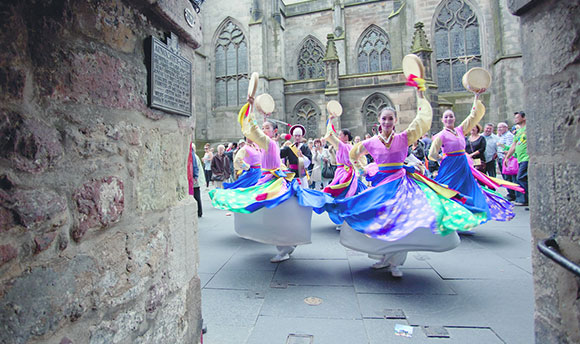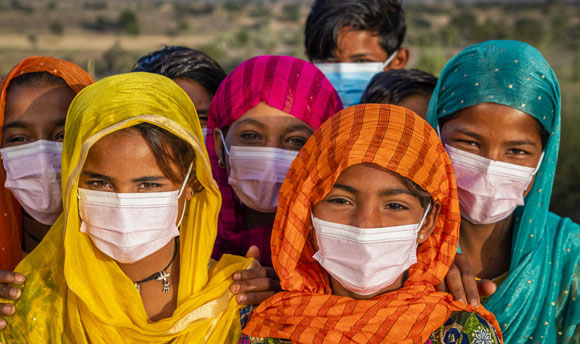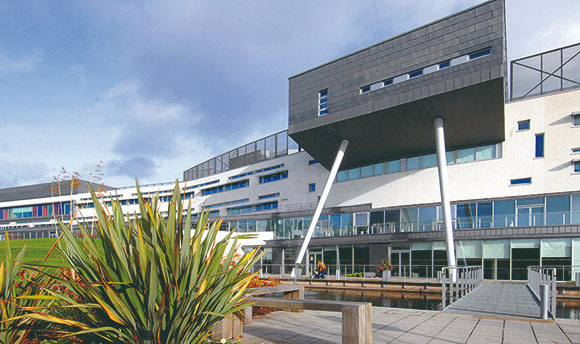Communication, Cultural and Media Studies, Library and Information Management
Communication, Cultural and Media Studies, Library and Information Management
Key statistics
In this submission to the Communication, Cultural and Media Studies unit of assessment of REF 2021 in the seven year period 2014-2020:
- 16 researchers were submitted, of whom eight were women, a headcount 60% greater than in REF 2014.
- 70% of staff in this wider group (16/23) were identified as having significant responsibility for research and, as such, had outputs submitted to REF 2021.
- There was a 100% increase in the number of candidates being awarded PhDs during the census period for REF 2021 compared with REF 2014.
- At the end of the census period, there were 17 PhD students registered.
Examples of our work
Research in this area is organised into several clusters. Within the Creative and Cultural Industries cluster, we explore the relationships between cultural production and cultural consumption by interrogating the ways in which governments, markets, cultural organisations, traditional media, and digital institutions construct value and meaning from creative processes and products. Researchers’ interests are cross-disciplinary and include, for example, equality and diversity in cultural practices and policymaking; in/exclusion in festival environments; sustainability of cultural organisations; creative industries and cultural value; notions of quality in creative practice; cultural participation; conceptualisations of 'failure' in cultural policy; media policy; mediation of popular music; and broadcast radio.
In the Film, Television, and Internet Media cluster, we explore screen cultures through a variety of methods including critical textual analysis, political economies of media, qualitative audience research, and production studies. The cluster includes members with various specialisms, for example: adaptation, genre, transmedia storytelling, digital media convergence, and media education. Researchers share an interest in key areas of enquiry, for example, changing modes of distribution and consumption, culture and politics, and the changing relationship between theory and practice. During the census period, we expanded our expertise in Film Studies with the addition of new staff, including Dr Robert Munro and Dr Stefanie Van de Peer.
We are also developing a strand of practice-based research. In this cluster, researchers are focused on the question of what is knowledge-in-doing. The cultural and creative industries often operate in affective, ephemeral, relational and active manners; its unique knowledge lies in the production of cultural work, and such knowledge can be difficult to translate into linear, rationalised, and traditional manners. Working across drama, theatre, film, and visual art as well as other expressive forms of creative practice, staff in this emergent cluster are focused on the development of practice research through supporting reflection about, and the development of, creative practice as a research methodology. During the census period we have been joined by several practice-oriented researchers to support our longer-term plans, notably Dr Anthony Schrag and Dr Andy Henry.
Examples of knowledge exchange collaborations over the census period include:
- Dr Anthony Schrag’s work with Perth Museums and Galleries to develop public engagement strategies within a local authority museum context;
- Professor David Stevenson’s work with Arts Council Malta to support capacity building within the Maltese cultural sector;
- Dr Robert Munro’s work with Screen Scotland to develop and deliver professional development programmes to existing film education practitioners;
- Dr Rebecca Finkel’s work with EventScotland to develop new audience engagement activities;
- Our contribution to the successful £2.5m consortia bid for the UK Centre for Cultural Value.
In collaboration with colleagues from other universities, both in the UK and beyond, we hosted nine one-day colloquiums including events on cultural policy and the ‘local’, the value of comedy, adaptation and the nation, the failure of cultural participation, Scotland on screen, and diversity in cultural production. We also established and ran the First Biennial Conference in Food and Communication and hosted the American Association of Arts Administration Educators Annual Conference. In 2010 we initiated a pilot project to develop a Rural Art Network across Scotland to share learning about participatory art practices within remote and rural contexts. The resultant network gained funding in 2021 from the Royal Society of Edinburgh to support its continuation.
We are also proud of the work we undertook with colleagues at the Glasgow School of Art and the Royal Conservatoire of Scotland to develop “SHIFT”. Recognising the importance of research-led innovation, the SHIFT partnership delivers specialist events and resources aimed at encouraging innovation in the cultural and creative industries. Participation in SHIFT was extended to other HEIs in 2020. The success of SHIFT is raising the international profile of best practice in collaborative models of entrepreneurial training for researchers in Scotland, with an invite for the three partner institutions to present SHIFT as an exemplar of excellence at the ELIA Biennial Conference 2020, hosted by the Zurich University of the Arts. ELIA is a European network of 250 members in 47 countries that advocates for higher arts education.
Internal collaboration has also been a feature of research in this area. Along with colleagues from QMU’s School of Business, Rachel Blanche evaluated the Bank of Scotland’s philanthropic grants, while Dr Anthony Schrag collaborated with colleagues in QMU’s School of Health Sciences to consider how creative practice might help healthcare practitioners to better understand the lived experience of those with osteoporosis. Likewise, Dr Robert Munro worked with the University’s Initial Teacher Education team to develop a project that supported probationary primary school teachers gain confidence in using filmmaking and film in the classroom.
On a more international note, Dr Stefanie Van De Peer has been working with colleagues at the University of Exeter on the AHRC funded project Building a Transnational Network for Moroccan Cinema: Audiences, Festivals and Talent Development. This builds on a significant body of previous film research, including her edited collection Animation in the Middle East: Practice and Aesthetics from Baghdad to Casablanca, which was nominated by the Society for Animation Studies for the award of best scholarly book in animation in 2020, and won the British Association for Film, Television and Screen Studies award for best edited collection in 2018. Dr Van de Peer is also an editor of the Edinburgh University Press series ReFocus: The International Directors, and a board member of both the Journal of African Cinemas and the open-access MAI: Journal of Feminism and Visual Culture. Finally, she is a trustee and programmer for the Africa in Motion Film Festival and founded MONA, a festival in Antwerp (Belgium) dedicated to Middle Eastern and North African film.
Read our full case study on our work on Critical dialogue - changing harmful cultural practices for young people
Read the research impact case study ‘The Best It Can Be’: redefining and enhancing quality in participatory arts on the REF 2021 website (available June 2022)







